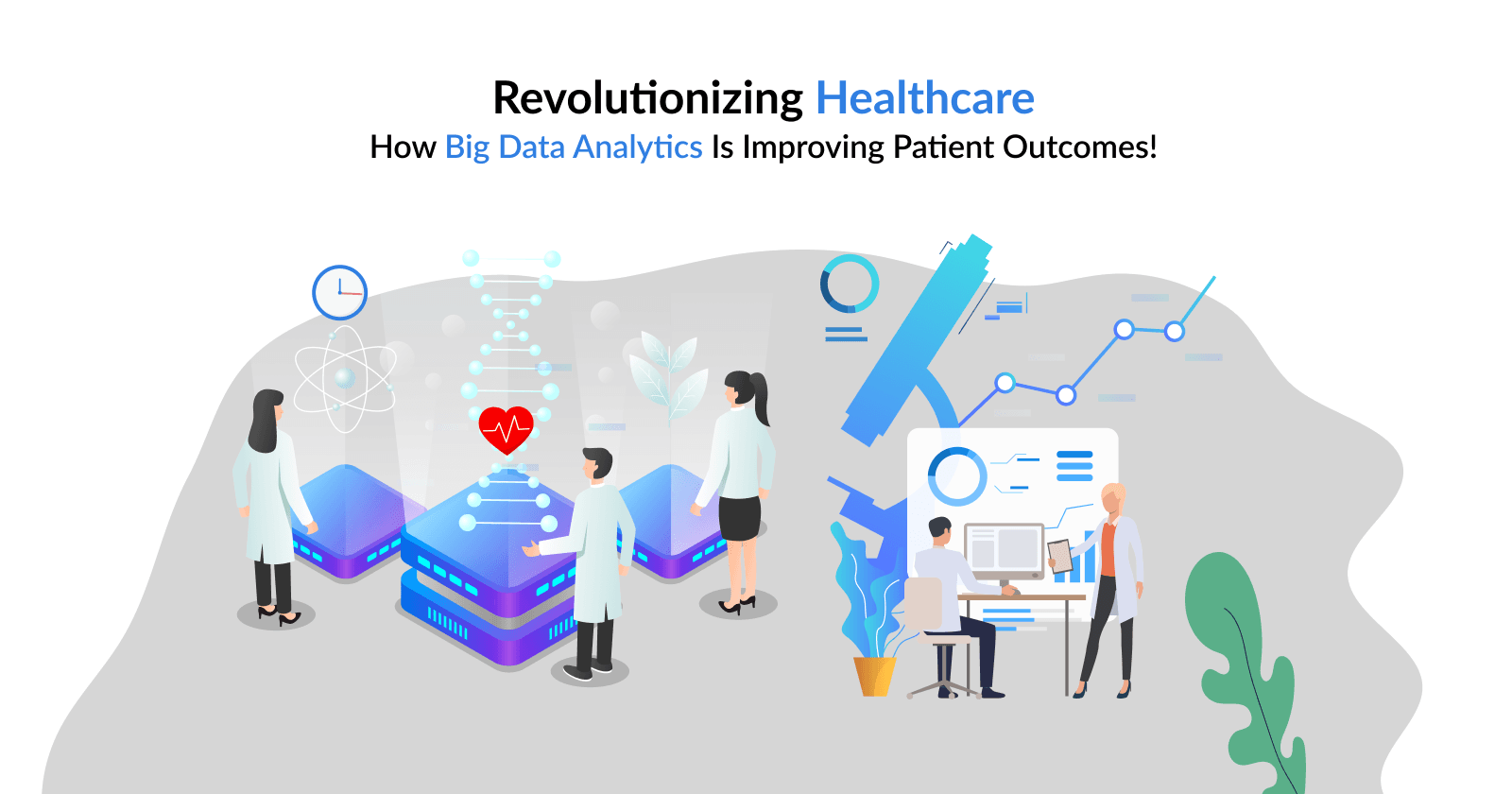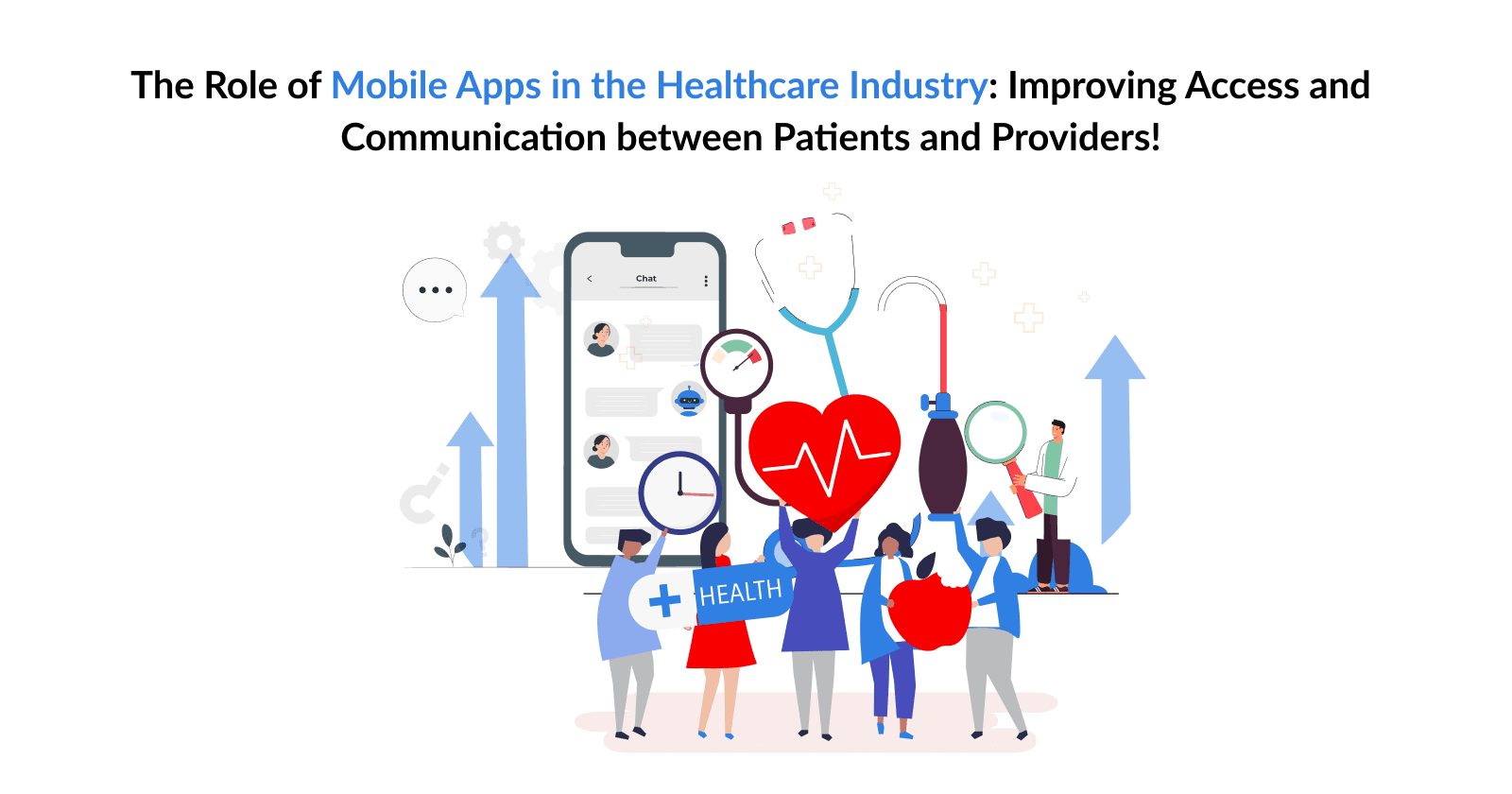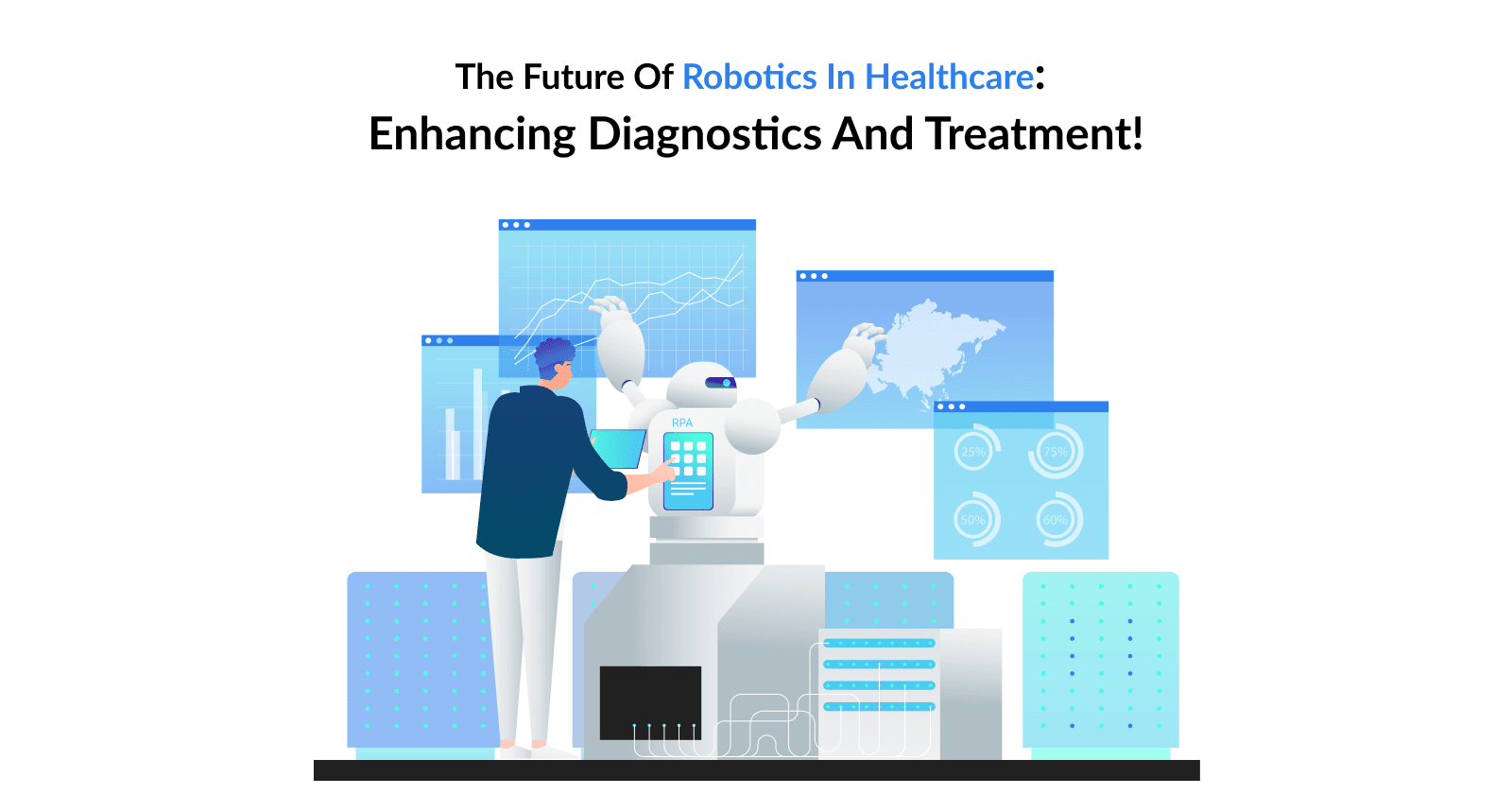Introduction
The healthcare industry has seen significant changes over the years, from the introduction of electronic health records to telemedicine. One of the latest technological advancements in healthcare is blockchain.
The healthcare industry has seen significant changes over the years, from the introduction of electronic health records to telemedicine. One of the latest technological advancements in healthcare is blockchain.
While most people associate blockchain with cryptocurrencies, its potential in healthcare is just as promising. Blockchain can transform medical records management, providing secure, efficient, and accurate ways of storing and sharing patient information.
In this blog, we’ll discuss how blockchain can transform medical records management and its potential to revolutionize healthcare.
What is blockchain?
Blockchain is a distributed ledger technology that enables secure, transparent, and tamper-proof transactions. It is a decentralized system, which means that there is no central authority that controls the system. Instead, it is run by a network of nodes that work together to validate and record transactions. Each transaction is stored in a block, and once added to the blockchain, it cannot be altered or deleted.
How can blockchain transform medical records management?
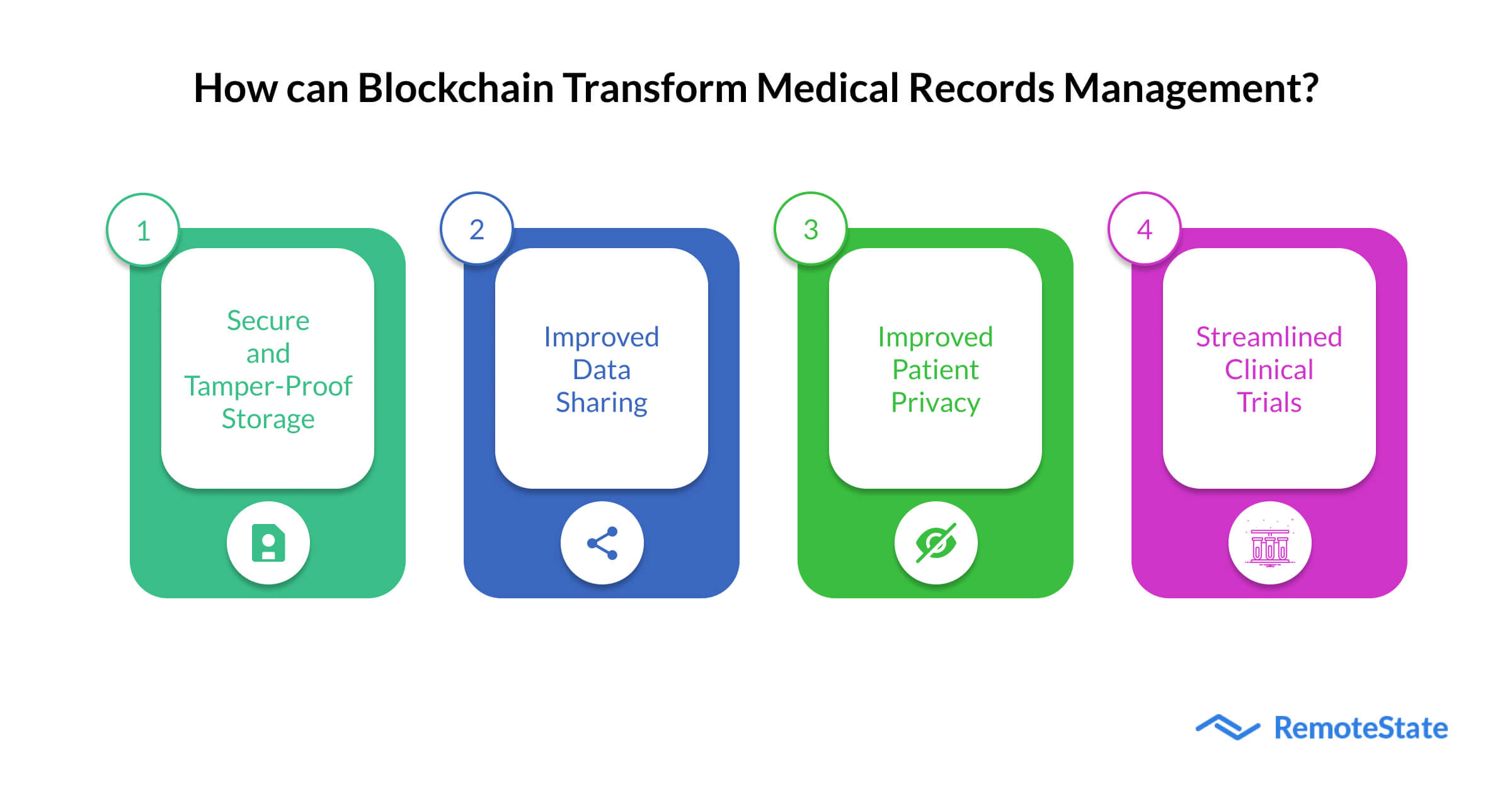
Secure and tamper-proof storage
Blockchain technology provides a secure and tamper-proof way of storing medical records. Each transaction is encrypted and stored on multiple nodes, making it virtually impossible for hackers to access or alter the information.
Improved data sharing
Blockchain technology can improve data sharing between healthcare providers by providing a secure and efficient way of sharing medical records. Patients can grant access to their medical records to healthcare providers, and the information can be accessed instantly, reducing the time and cost of transferring medical records.
Improved patient privacy
Blockchain technology can ensure patient privacy by allowing patients to control who has access to their medical records. Patients can grant access to healthcare providers, researchers, and other stakeholders while maintaining control over their personal health information.
Streamlined clinical trials
Blockchain technology can streamline the process of conducting clinical trials by securely storing patient data on the blockchain. Medical professionals can access the data instantly, reducing the time and cost of conducting clinical trials.
Potential for Revolutionizing Healthcare
Improved patient outcomes
By providing secure and accurate medical records, blockchain technology has the potential to improve patient outcomes. Medical professionals can access up-to-date information about a patient's health, enabling them to provide better care and treatment.
Reduced healthcare costs
Blockchain technology can reduce healthcare costs by streamlining data sharing and improving the efficiency of medical record management. This can lead to cost savings for healthcare providers and patients.
Increased research and development
Blockchain technology can increase research and development by providing a secure and efficient way of sharing medical data. Researchers can access a large pool of data, enabling them to conduct more comprehensive studies and make discoveries.
Improved public health
Blockchain technology can improve public health by enabling the quick and secure sharing of medical information during disease outbreaks. This can help public health officials track the spread of disease and respond more effectively.
Enhanced healthcare access
Blockchain technology can enhance healthcare access by providing patients with control over their medical records. Patients can grant access to healthcare providers anywhere in the world, enabling them to receive treatment even if they are traveling or living in a different country.
Challenges and their solutions
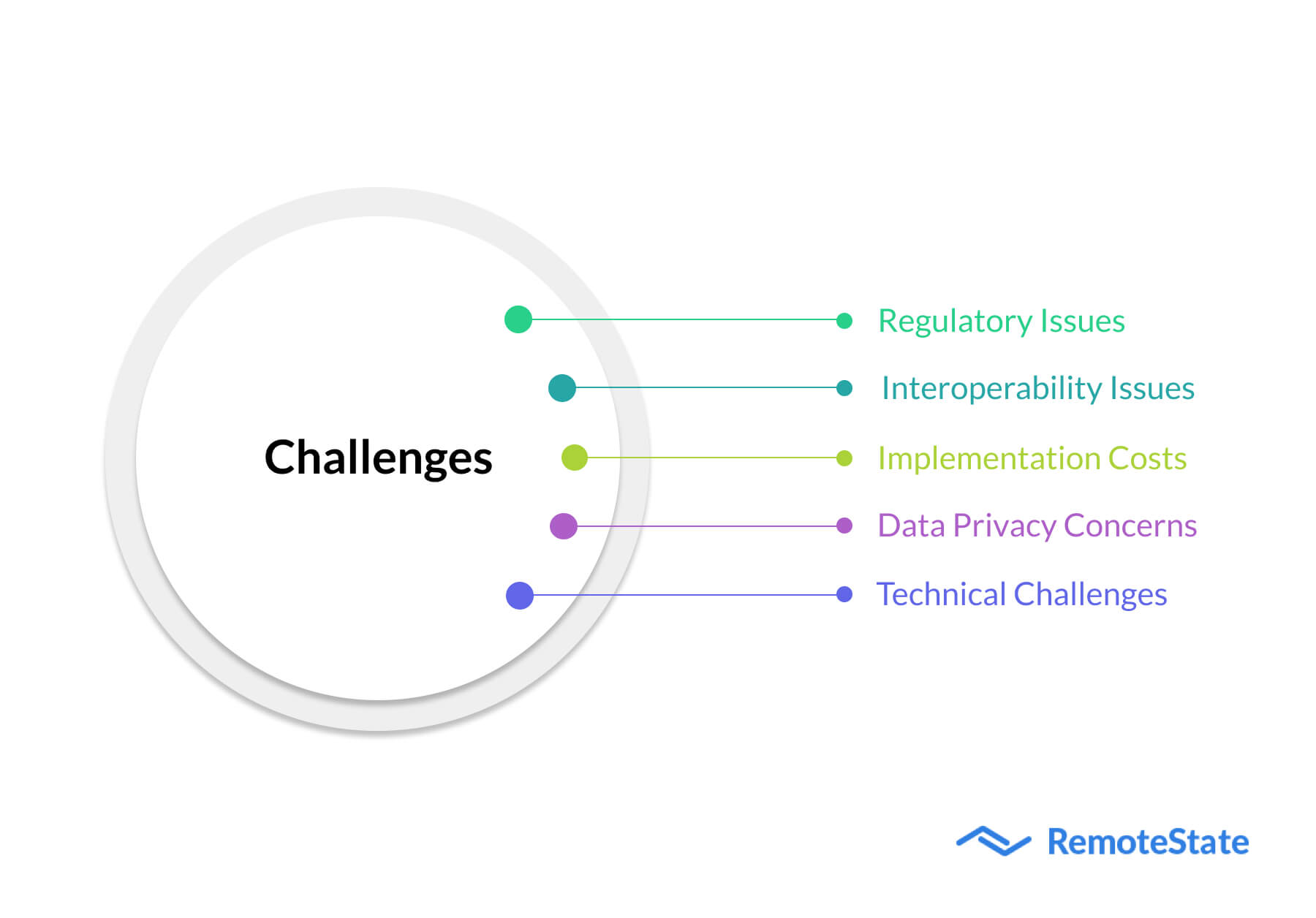
Despite the potential benefits of blockchain in healthcare, there are still several challenges that need to be addressed. Here are some of the challenges and their potential solutions:
Regulatory issues
The lack of regulatory frameworks for blockchain in healthcare is a significant challenge. Governments and regulatory bodies need to develop clear guidelines and standards for the use of blockchain in healthcare.
Interoperability issues
The lack of interoperability between different blockchain systems is a challenge. Healthcare providers need to develop systems that can work with different blockchain platforms.
Implementation costs
Implementing blockchain technology can be expensive. Healthcare providers need to carefully evaluate the costs and benefits of implementing blockchain and develop strategies for reducing costs.
Data privacy concerns
While blockchain technology can improve data privacy, there are still concerns about patient privacy. Healthcare providers need to develop systems that protect patient privacy while still providing access to medical records.
Technical challenges
Implementing blockchain technology requires technical expertise, and healthcare providers may not have the necessary resources or expertise. Healthcare providers need to develop partnerships with technology companies or hire experts in blockchain technology.
To address these challenges, healthcare providers must develop comprehensive strategies for implementing blockchain technology. These strategies should include a thorough evaluation of the costs and benefits of blockchain technology, the development of clear guidelines and standards for the use of blockchain in healthcare, and partnerships with technology companies or experts in blockchain technology.
Conclusion
Blockchain technology has the potential to revolutionize healthcare by providing secure and efficient ways of storing and sharing medical records. By improving data sharing, accuracy, patient privacy, and streamlining clinical trials, blockchain technology can improve patient outcomes, reduce healthcare costs, and increase research and development. However, there are still challenges that need to be addressed, including regulatory issues, interoperability issues, implementation costs, data privacy concerns, and technical challenges.
Healthcare providers need to develop comprehensive strategies for implementing blockchain technology that addresses these challenges and unlocks the full potential of blockchain in healthcare.
Revolutionizing Healthcare with Blockchain: How Remotestate Can Help
Remotestate can play a crucial role in helping healthcare providers implement blockchain technology in their operations. With expertise in developing blockchain solutions for various industries, Remotestate can offer customized solutions that meet the unique needs of healthcare providers.
Remotestate's team of experts can work closely with healthcare providers to evaluate their existing systems, identify the areas where blockchain technology can be implemented, and develop a comprehensive strategy for implementing blockchain technology. This can involve designing and developing secure and user-friendly applications that utilize blockchain technology to improve data sharing, accuracy, and patient privacy, and streamline clinical trials.
Moreover, Remotestate can provide technical support and maintenance services to ensure blockchain solutions continue working seamlessly and effectively. This can help healthcare providers focus on their core operations while leaving the technical aspects of blockchain implementation to the experts.
By partnering with Remotestate, healthcare providers can leverage the expertise of a leading software development company to implement blockchain technology in their operations. This can help healthcare providers improve patient outcomes, reduce costs, and unlock the full potential of blockchain in healthcare.
FAQs
What is blockchain technology?
Blockchain technology is a decentralized, digital ledger that provides a secure and tamper-proof way of storing and sharing information.
How can blockchain technology improve healthcare?
Blockchain technology can improve healthcare by providing secure and efficient ways of storing and sharing medical records, reducing healthcare costs, increasing research and development, improving patient outcomes, and enhancing healthcare access.
What are the challenges of implementing blockchain technology in healthcare?
The challenges of implementing blockchain technology in healthcare include regulatory issues, interoperability issues, implementation costs, data privacy concerns, and technical challenges.
What is the solution to these challenges?
The solution to these challenges includes developing comprehensive strategies for implementing blockchain technology, developing clear guidelines and standards for the use of blockchain in healthcare, and partnering with technology companies or experts in blockchain technology.
What is the future of blockchain in healthcare?
The future of blockchain in healthcare is bright, with the potential to transform the way we manage patient information and improve patient outcomes. However, it will require significant investment and collaboration between healthcare providers and technology companies to unlock the full potential of blockchain in healthcare.
Publication Date
2023-03-06
Category
Healthcare
Author Name
Rahul Agrawal
